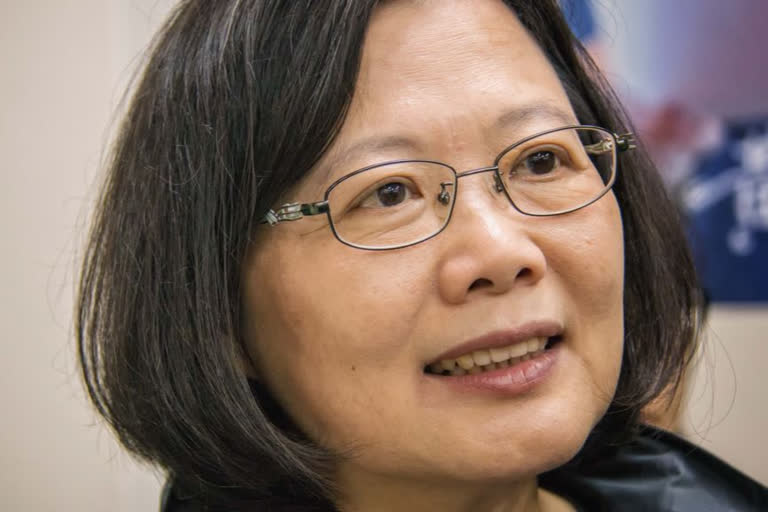Taipei: Taiwanese President Tsai Ing-wen has been inaugurated for a second term amid increasing pressure from China on the self-governing island democracy it claims as its territory.
Tsai represents the ruling Democratic Progressive Party which advocates Taiwan's formal independence, something Beijing says it will use force to prevent.
She won in a landslide last year after the repression of pro-democracy protests in the nearby Chinese semi-autonomous region of Hong Kong solidified public opinion in Taiwan against moves toward accepting rule by Beijing.
The sides split amid civil war in 1949 and Beijing has cut off ties with Tsai's government over her refusal to accept its demand that she recognize the island as a part of China.
Beijing's diplomats have shut Taiwan out of international gatherings such as the World Health Assembly and poached away its diplomatic allies while its military has boosted patrols and exercises aimed at intimidating the island's population.
Following on Wednesday morning's ceremony, Tsai, 63, is to give an inaugural address and provide over a parade celebrating the island's mixed Chinese and Asian-Pacific heritage.
A former law professor, Tsai is unique in being the only modern woman leader in Asia to rise to the top without being part of a political dynasty. Among those attending are representatives of Taiwan's remaining 15 formal diplomatic allies.
Read more: Vending machines sell surgical masks amid virus pandemic
The US maintains strong but informal ties with Taiwan and is the island's main source of military support against China's military threats.
Before her address, congratulatory remarks from US Secretary of State Mike Pompeo were read out praising Tsai's courage and vision in leading Taiwan's vibrant democracy is an inspiration to the region and the world.
The United States has long considered Taiwan a force for good in the world and a reliable partner, Pompeo said in the statement.
We have a shared vision for the region one that includes rule of law, transparency, prosperity, and security for all.
The US support comes amid rising frictions between Washington and Beijing over trade, technology and allegations of Beijing's mishandling of the coronavirus pandemic that began last year.
At the same time, Washington has increased military sales to the island of 23.6 million and Congress has passed legislation promoting closer political and economic ties.
Despite Beijing's attempts to isolate it diplomatically and vastly reduce numbers of Chinese tourists visiting the island, Tsai has overseen steady growth in Taiwan's high-tech economy and enacted social reforms, including making the island the only democracy in Asia to recognize same-sex marriage.
Also read: Taiwan's leader re-elected as voters back tough China stance
Reforms, including reductions in civil service pensions had sparked a backlash and Tsai had appeared vulnerable to a challenge from the pro-China Nationalist Party candidate.
However, her support for the pro-democracy movement in Hong Kong in the face of an often-violent police response helped lift her poll figures.
Many see China's autocratic Communist Party as eroding Hong Kong's civil liberties and Taiwanese voters have strongly rejected any moves toward political accommodation with Beijing.
Poll results released by the US-based Pew Research Center last week found that 66% of island residents view themselves as Taiwanese, 28% as both Taiwanese and Chinese and 4% as just Chinese.
The telephone poll of 1,562 people, conducted last fall, has a margin of error of 3.2 percentage points. Among respondents under 30, fully 83% said they don't consider themselves Chinese.
Another 2.3% of Taiwan's people are members of indigenous groups who are not ethnically Chinese.
A former Japanese colony, Taiwan was handed to China in 1945 but split again from the mainland when Mao Zedong's Communists swept to power on the mainland in 1949. The rival Nationalists, led by Chiang Kai-shek, fled to Taiwan, 160 kilometers (100 miles) off China's east coast.
Also read: Voting begins in Taiwan's 2020 general election
(With inputs from PTI)



